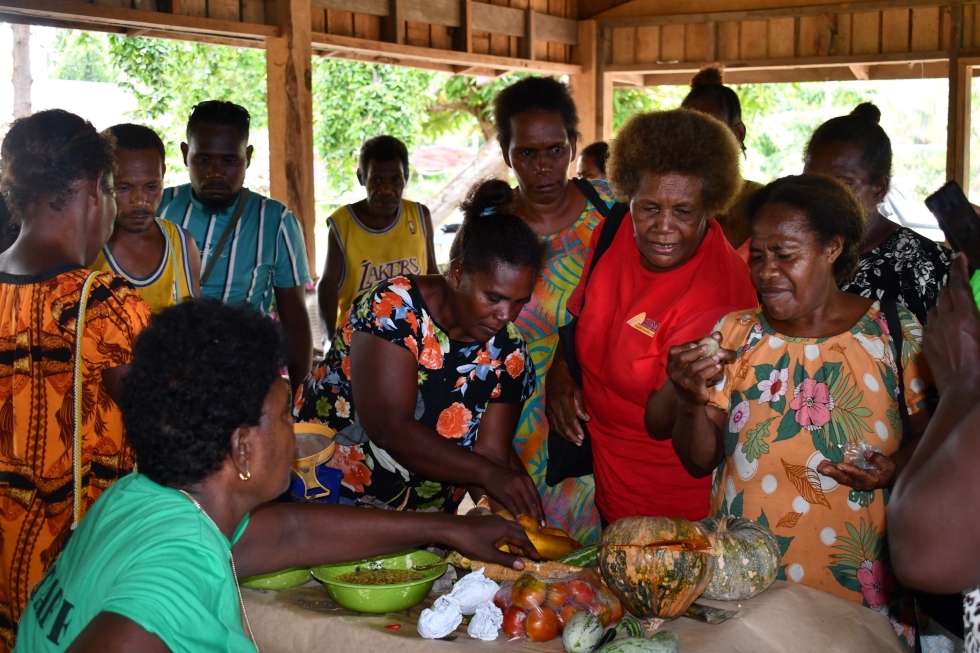THE 15MW renewable energy project continues to provide business opportunities for local companies such as Honiara based Kastom Gaden Association (KGA), who recently worked alongside the Gender Action Plan (GAP) Program team to train local catchment communities in agricultural practices.
KGA has been at the forefront of supporting rural self-reliance since its establishment in 1995 and is the latest locally based company to benefit from the renewable energy project in the Solomon Islands.
As a leading provider of farming training and support services, Kastom Gaden Association is committed to supporting the self-reliance of rural people through sustainable small-scale agriculture intertwined with Agro-ecology farming practices. Because of its impressive background in community-based services, KGA was chosen to partner with the GAP program to providing essential training programs aimed at improving food security, encouraging self-reliance, and promoting sustainable farming practices.
KGA has grown to become a leading provider of farming training and support services across a nation where rural population stands at more than 80%. KGA has a network of rural farmers who are members of the Planting Material Network (PMN) with a current total membership of more than 7,000 registered members throughout the country, with the PMN members being the target beneficiaries.
Esther Lodu, the Kastom Gaden Planting Material Coordinator and Trainer, said the local company was pleased to be awarded the training contract and have an opportunity to work with a national priority project. “After being briefed by the GAP team, we put together a custom package for local communities with training sessions covering various topics such as climate smart agriculture farming system.”
She goes on to add that “the aim of the training was to help improve food security through encouraging self-reliance and sustainable organic food production for the family’s nutrition needs first, and then for local markets. Training and assistance in setting up and managing community-based seed and staple food crop planting material production and distribution networks was also covered.”
Esther also hopes the partnership between KGA, and the Tina River Hydropower Development Project has contributed towards skill development and economic empowerment for all involved. “I encourage as many local businesses as possible to work alongside the Tina River project if the opportunity presents itself, in order to keep the benefits local and help improve the lives of our communities.”
The expected outcome of this training is to see an increase in the varieties of food grown and consumed by trained communities and an increase of quality vegetable crop production free from chemical fertilisers and pesticides that can help produce a stable and reliable income.
The Gender Action Plan (GAP) Program, which commenced in 2019, has positively impacted hundreds of people through training and skill development, predominately investing in the lives of rural women and girls. The GAP team work closely with the Ministry of Mines, Energy and Rural Electrification under the Solomon Islands Government (SIG) as well as multiple stakeholders who finance and support the Project including the Abu Dhabi Fund for Development, the Asian Development Bank, the Government of Australia, the Green Climate Fund, Korea EX-IM Economic Development Cooperation Fund, and the World Bank.
SOURCE: Tina River Hydro Development Project (TRHDP)

